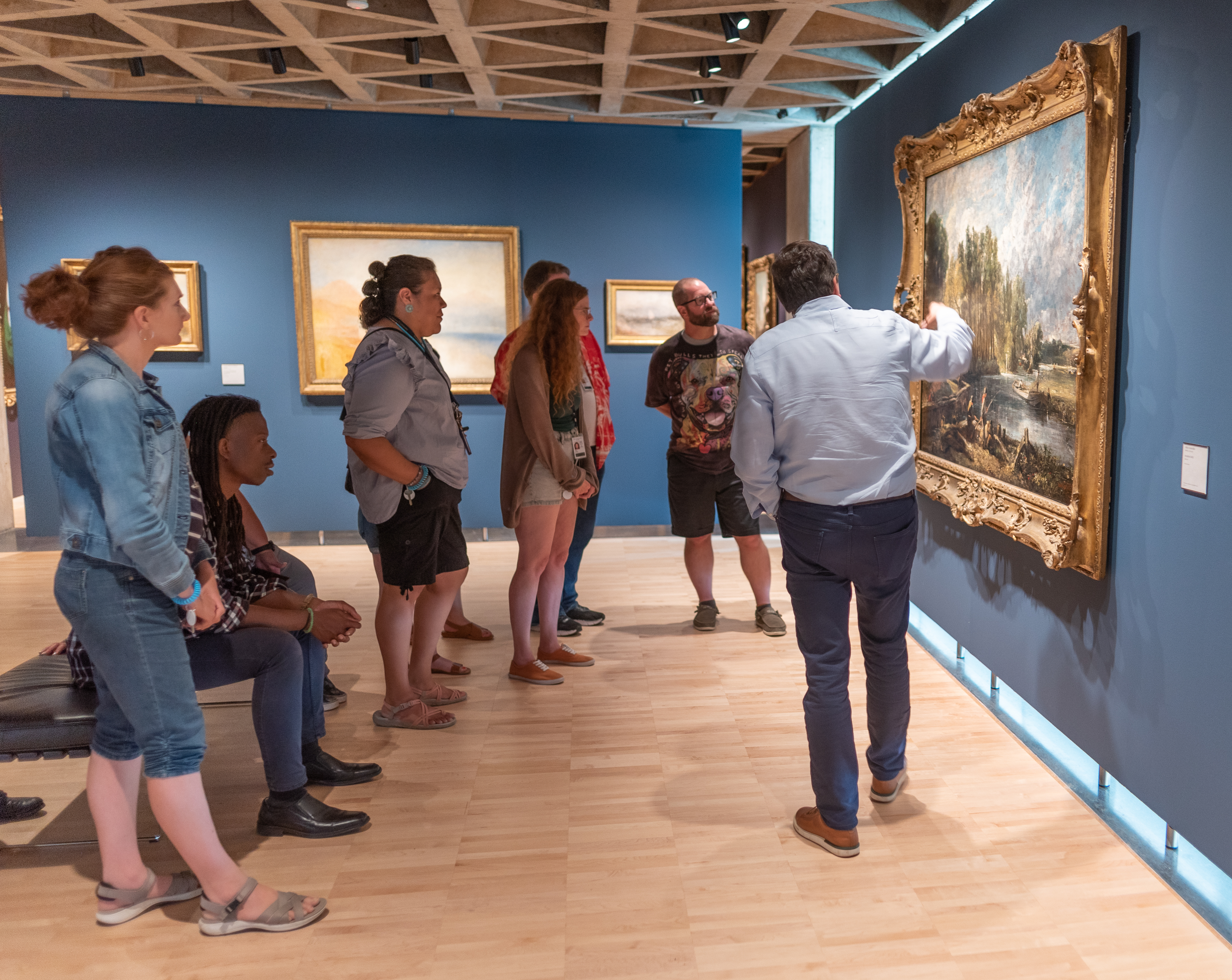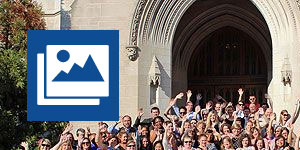- Login
- Home
- About the Initiative
-
Curricular Resources
- Topical Index of Curriculum Units
- View Topical Index of Curriculum Units
- Search Curricular Resources
- View Volumes of Curriculum Units from National Seminars
- Find Curriculum Units Written in Seminars Led by Yale Faculty
- Find Curriculum Units Written by Teachers in National Seminars
- Browse Curriculum Units Developed in Teachers Institutes
- On Common Ground
- Publications
- League of Institutes
- Video Programs
- Contact
Have a suggestion to improve this page?
To leave a general comment about our Web site, please click here
Public School Teachers Complete Program at Yale

Public school teachers from fourteen school districts in eleven communities in ten states have completed national seminars and an Intensive Session as participants in the Yale National Initiative to strengthen teaching in public schools®.
About two thirds of the sixty-nine teachers, named Yale National Fellows, were from seven communities that are planning or exploring the establishment of a new Teachers Institute: Charlotte, NC; Chicago, IL; DeKalb County, GA; New Castle County, DE; Richmond, VA; San Francisco, CA; and Santa Fe, NM. Other National Fellows were from existing Institutes in Houston, Philadelphia, Pittsburgh, and New Haven that are members of the League of Teachers Institutes®.
The twin purposes of the program were to acquaint public school teachers with the Teachers Institute approach to high-quality professional development, and to cultivate their leadership in either creating or sustaining such an Institute. Each participating teacher wrote a curriculum unit to teach his or her students what they learned, to share with teachers in their school district, and to disseminate to other teachers internationally over the Internet.
The seven seminars led by Yale faculty members, which began in early May and concluded in August, included:
- “Storytelling around the Globe,” led by Dudley Andrew, R. Selden Rose Professor of Film Studies and Comparative Literature;
- “Green Chemistry,” led by Gary W. Brudvig, Eugene Higgins Professor of Chemistry and Professor of Molecular Biophysics and Biochemistry;
- “The Rise, Fall, and Rise Again of the Civil Rights Movement,” led by Robert A. Burt, Alexander M. Bickel Professor of Law;
- “Shakespeare and Human Character,” led by Paul H. Fry, William Lampson Professor of English;
- “The Sound of Words: An Introduction to Poetry,” led by Langdon L. Hammer, Professor of English and of American Studies;
- “The Brain in Health and Disease,” led by W. Mark Saltzman, Goizueta Foundation Professor of Chemical and Biomedical Engineering; and
- “Energy, Climate, Environment,” led by John P. Wargo, Professor of Environmental Risk Analysis and Policy.
Participants, who lived on the Yale campus during the two-week Intensive Session in July, included not only the Yale National Fellows but also directors of Teachers Institutes, planning directors for new Institutes, and twenty college and university faculty members who have led or may lead local Teacher Institute seminars. Between July 6 and 17 Fellows attended ten two-hour daily meetings of their seminars and conferred individually with their seminar leaders. One National Fellow served as the Coordinator of each seminar. The Coordinators were Bonnee Breese of Philadelphia, Maria Cardalliaguet Gómez-Málaga of New Haven, Joseph A. Corsetti of New Haven, Barbara M. Dowdall of Philadelphia, Eric J. Laurenson of Pittsburgh, Francisca Eunice Rebullida of Houston, and Huwerl Thornton, Jr. of New Haven.
College and university faculty members who have led local Institute seminars and those from institutions that are partners in establishing a new Teachers Institute observed national seminars. They and directors met about faculty roles within an Institute and the institutional partnership an Institute represents between a school district and a college or university. They met with national seminar leaders about what they observed, and with other experienced seminar leaders about the seminar and curriculum unit writing process, and the purpose and function of a University Advisory Council in a Teachers Institute.
Institute directors met on a range of topics from evaluation and documentation, to finance and fund raising, to dissemination and the national Web site, to League policies and procedures.
Teams from each city or county that is planning or considering a Teachers Institute met with the Director of the Yale National Initiative, James R. Vivian, to discuss their potential Teachers Institute. At the conclusion of the Intensive Session, seven Fellows were named their communities’ teacher Representatives. The Representatives, who have responsibility for planning and implementing Initiative activities locally and nationally, and their cities are:
|
Connie S. Wood |
Charlotte, NC |
|
Adam J. Kubey |
Chicago, IL |
|
Stephanie Brown-Bryant |
DeKalb County, GA |
|
Barbara A. Prillaman |
New Castle County, DE |
|
Valerie Schwarz |
Richmond, VA |
|
Lisa Ernst |
San Francisco, CA |
|
Sharyn F. Gray |
Santa Fe, NM |
The Yale National Initiative to strengthen teaching in public schools® is a long-term endeavor to establish exemplary Teachers Institutes in under-served school districts in states throughout the country. Following the approach developed in New Haven and demonstrated in other cities, it builds upon the success of a four-year National Demonstration Project. The League of Teachers Institutes® is an alliance that advances their work locally and nationally.
Teachers Institutes are educational partnerships between universities and school districts designed to strengthen teaching and learning in a community’s public schools. Evaluations have shown that the Institute approach enhances teacher quality in the ways known to improve student achievement and encourages participants to remain in teaching in urban schools. Yale-New Haven Teachers Institute®. participants were twice as likely as non-participants to remain in teaching in New Haven.
Yale National Initiative®, Yale-New Haven Teachers Institutes®, and League of Teachers Institutes® are registered trademarks of Yale University.




